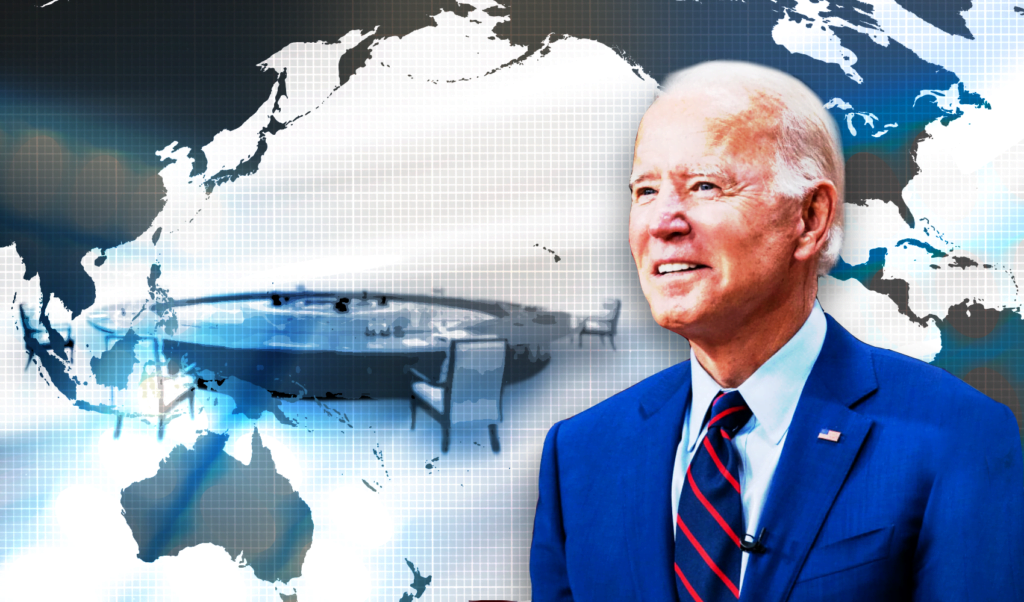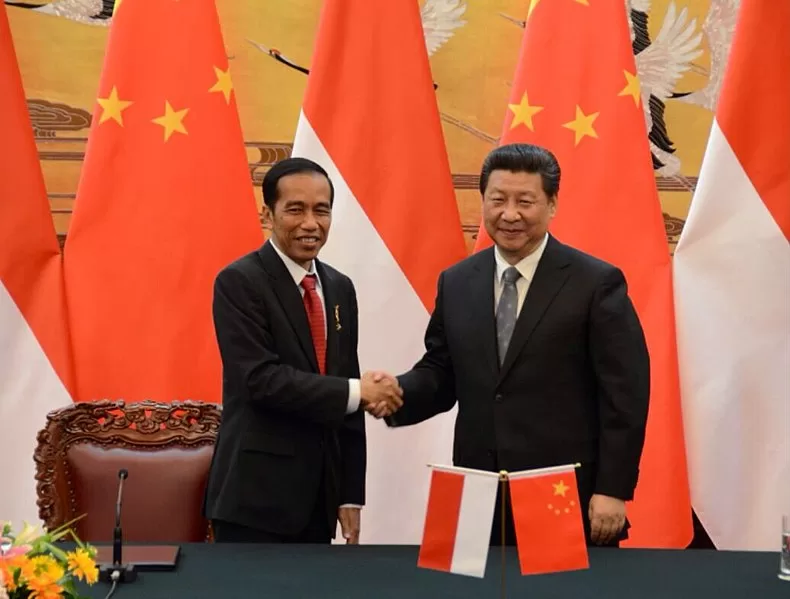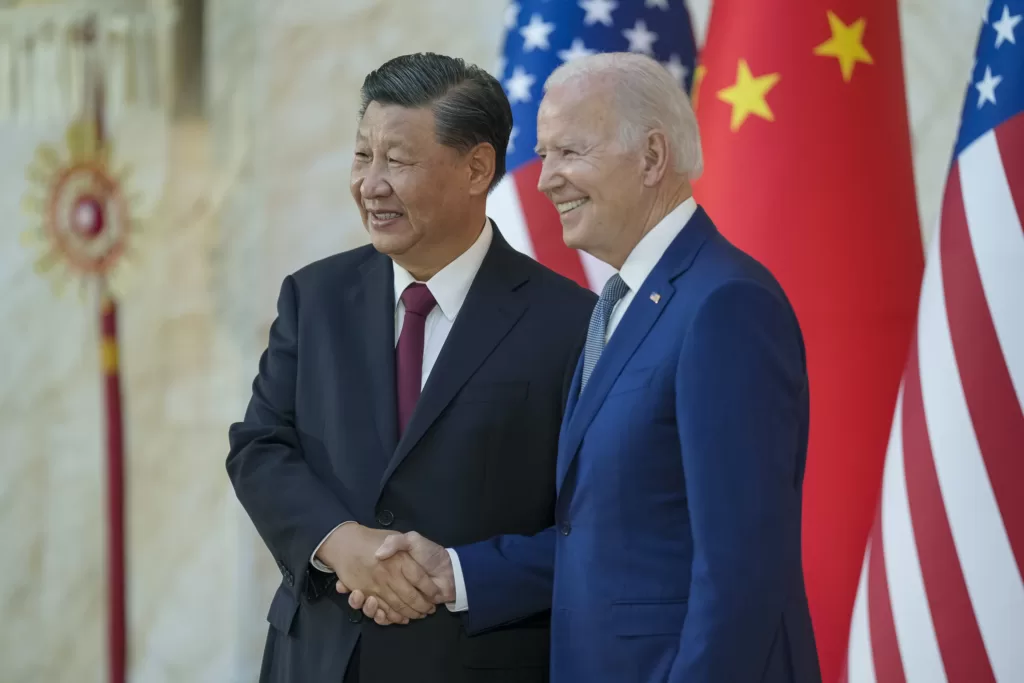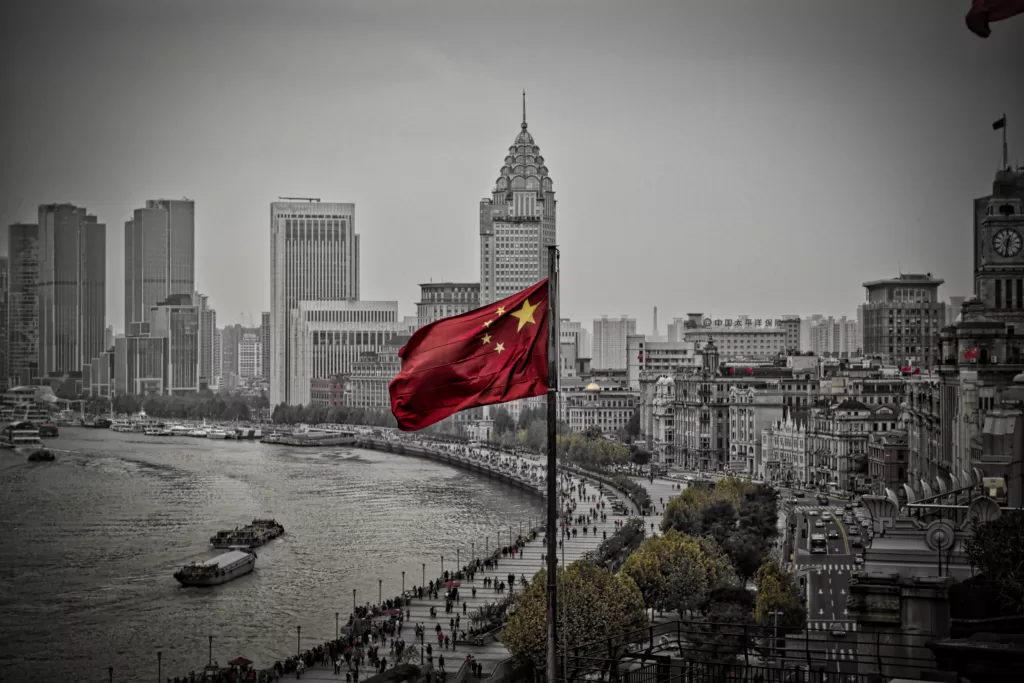We use cookies to improve your experience with Monash. For an optimal experience, we recommend you enable all cookies; alternatively, you can customise which cookies you’re happy for us to use. You may withdraw your consent at any time. To learn more, view our Website Terms and Conditions and Data Protection and Privacy Procedure.
Why the APEC Summit in San Francisco is significant
Published on October 30, 2023The rise of China and the US response are set to dominate discussions at the meeting of Asia-Pacific Economic Cooperation (APEC) leaders in San Francisco.
 The APEC summit in San Francisco will seek to address climate change and economic disparities amidst ongoing wars and geopolitical competition. : Illustration: Michael Joiner, 360info, image credit/The White House, CC BY 3.0 US, via Wikimedia Commons CC BY 4.0
The APEC summit in San Francisco will seek to address climate change and economic disparities amidst ongoing wars and geopolitical competition. : Illustration: Michael Joiner, 360info, image credit/The White House, CC BY 3.0 US, via Wikimedia Commons CC BY 4.0
The rise of China and the US response are set to dominate discussions at the meeting of Asia-Pacific Economic Cooperation (APEC) leaders in San Francisco.
All eyes are on the visit of Chinese Foreign Minister Wang Yi to the US from 26 October.
Wang Yi’s visit, ostensibly to reciprocate the visit of US Secretary of State Antony Blinken to Beijing in June, takes place in the run up to the Asia-Pacific Summit in San Francisco which kicks off on 11 November.
There are expectations that US President Joe Biden will meet with Chinese President Xi Jinping there.
China has not yet confirmed Xi’s visit to the annual APEC Summit.
However, both the US and China do not seem to wish to escalate disagreements despite their strategic competition.
APEC is a significant platform for its 21 member economies to shape regional trade and collaborate on challenges including climate change, economic disparities and geopolitical issues.
However, instead of promoting regional trade integration, it seems to have become hostage to the trade and political rivalry between the US and China as both seek regional hegemony in the Asia Pacific.
China seems to be done with US-led economic trade forums. It is exploring a host of free-trade agreements, including with Japan and South Korea; regional trade agreements, strengthening trade ties with Latin America and setting up alternative regional trading structures like the Regional Comprehensive Economic Partnership (RCEP).
The US is focusing on creating alliances with individual countries like India and roping in ASEAN to counter China while promoting the Indo-Pacific Economic Framework. Both countries are making powerful bids to shape global trade while expanding their geo-political interests. Grand multilateral narratives of global trade are clearly floundering on the shores of nationalism.
The APEC Summit, therefore, assumes special significance.
It will test the efficacy of multilateralism in trade in the context of growing economic nationalism. The summit takes place not only against the backdrop of increasing competition between the two superpowers to shape global trade, but also growing US-China strategic rivalry, most acutely being felt over the ongoing war in Ukraine and the Israel-Hamas conflict.
By working together in APEC, both countries can signal to the world they can pursue their common economic interests, despite misperceptions, miscommunication and rising global challenges and live up to the theme of this year’s summit “Creating a Resilient and Sustainable Future for All”.
Originally published under Creative Commons by 360info™.
Editors Note: In the story “APEC Summit” sent at: 26/10/2023 09:17.
This is a corrected repeat.










